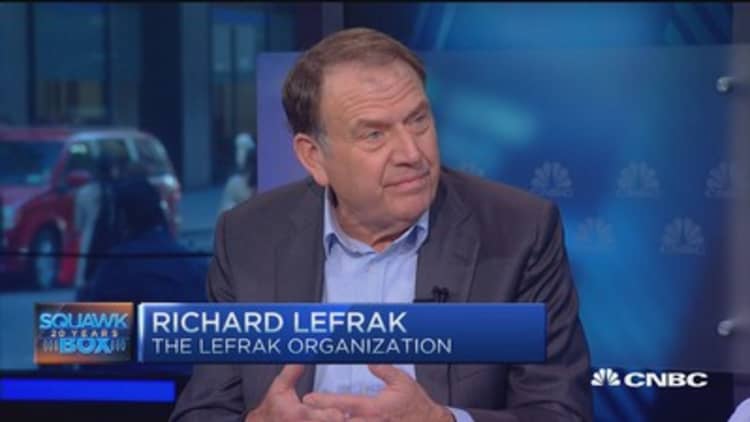
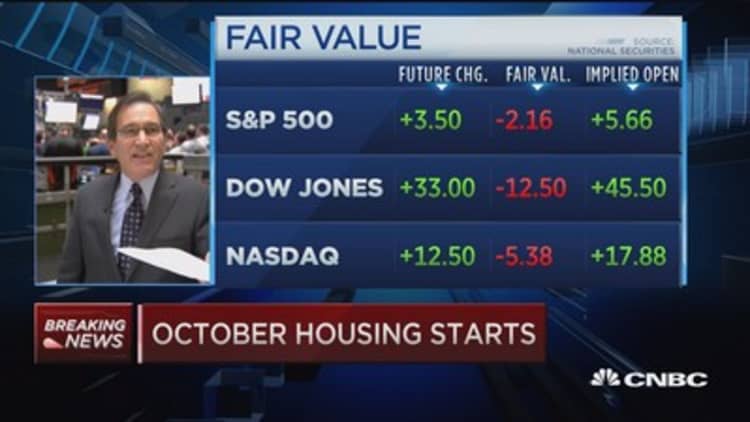
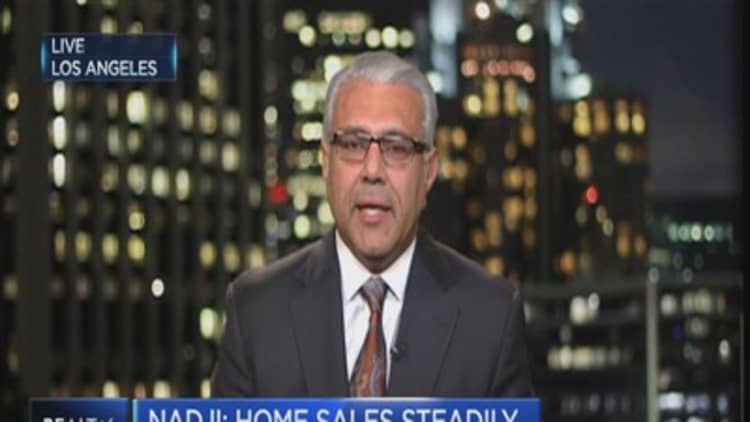
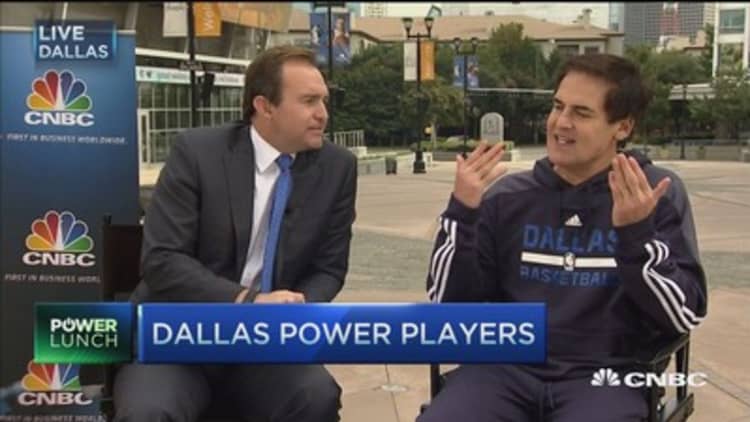
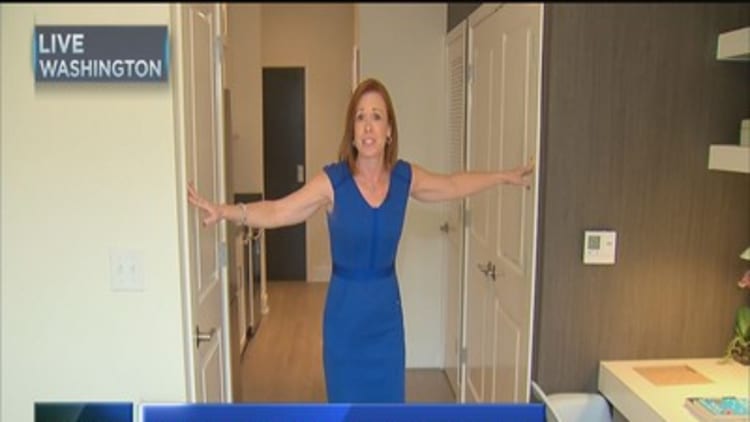
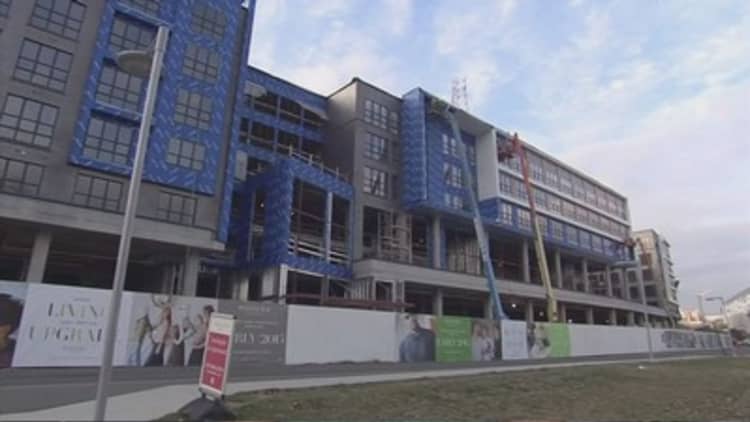
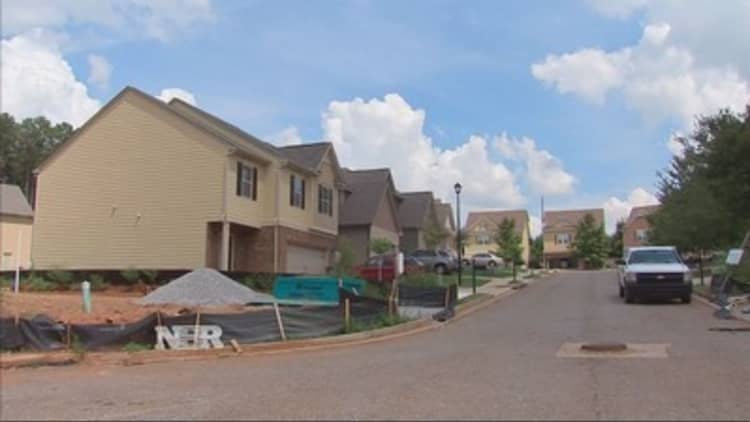
Looking across the vast spectrum of housing surveys today, most will claim that the majority of renters want to buy a home eventually. That may be, but they're not saving to do that.
In fact, saving for a down payment to buy a house ranks fourth on their list of priorities, according to a survey conducted in October by Harris Poll for Freddie Mac, which helps fund loans to homeowners and apartment developers.
When asked about their savings priorities, more renters said they consider saving for emergencies (59 percent), retirement (51 percent) and children's education (50 percent) an "essential/high priority." Only 39 percent said saving for a down payment. This is particularly surprising given fast-rising rents.
Rising rents, up over 5 percent annually nationwide, are affecting how renters spend their money more today compared with just a few months ago. More renters say they are making changes to spending or plans due to those higher rents. Just over half of those surveyed who have seen a rent increase in the past year say they are living payday to payday.
"We know rents are rising faster than incomes, and now we have data to show that many renters don't have enough to pay all their debts each month, which is forcing them to make tradeoffs, such as cutting spending on other items," said David Brickman, executive vice president of Freddie Mac Multifamily.
The share of renters who say they now have to put off plans to purchase a home rose to 55 percent in October from 44 percent in the last Freddie Mac renter survey in June. This occurred even as more said they would like to buy a home and have started looking.
Add it up and the lack of affordability is the answer. Renters may be looking, but they're not buying because they are faced with rising home prices and rising mortgage interest rates.
When asked the main reason they expect to still be renting three years from now, the top three answers had to do with affordability. The fourth was not good enough credit.
There is a growing divide, however, between those who rent a single-family home and those who rent in a multifamily apartment building. Seven in 10 multifamily renters said they expect to continue renting, up from 64 percent in the previous quarter. Renters of single-family homes say they are more likely to buy a home.
"Growth in the renter segment will most likely occur through multifamily properties as more than half of those currently renting single-family properties are planning to become homeowners in the near future," said Brickman. "The data shows single-family renters are increasingly more dissatisfied than multifamily renters."

That does not bode well for the growing number of investors in single-family rental homes. Even as large-scale institutional investors slow their purchases of homes to rent, smaller-scale and individual investors are picking up the slack. The number of single-family rental homes rose 35 percent since 2006, to 15.1 million from 11.2 million, according to John Burns Real Estate Consulting. Roughly 3.9 million owner-occupied homes became rentals in that time.
Either apartment managers are doing a better job of serving their tenants than single-family rental managers, or more renters simply prefer the apartment model, which usually offers additional amenities and better locations.
"Right now we're in the golden age of the fundamentals of the multifamily business," apartment developer Richard LeFrak said on CNBC's Squawk Box. "You have a drive toward urbanization where more and more people want to live in cities."
The survey of 2,020 adults was conducted online within the United States between Oct. 8-12. Of those surveyed, 703 were renters.





